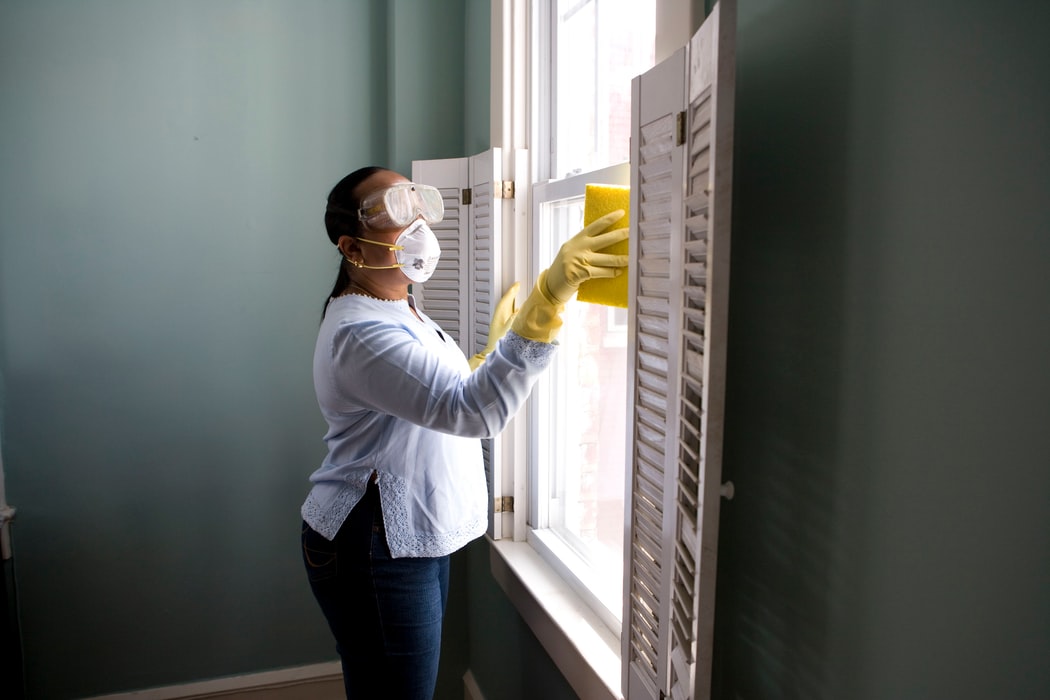
May 17, 2020
How To Clean and Disinfect Your house During the Spread of Coronavirus
According to the U.S. Centers for Disease Control & Prevention (CDC), coronaviruses are a large family of viruses, some of which already circulate among humans and cause mild illnesses, like the common cold. The virus causing coronavirus disease in 2019 (COVID-19) is a new strain that started in China and created economic collapse all over the world. Health experts continue to learn more about this new danger.
The virus has similar symptoms that occur during respiratory illnesses, including fever, cough, and shortness of breath. It seems to spread like other respiratory illnesses as well, primarily through infected person-to-person contact.
These days it’s necessary to moisturize your hands. Dry and cracked skin is at higher risk for all kinds of diseases, so if you washed your hands apply a little moisturizer next. A lot of moisturizing creams have common ingredients, like water and glycerin, so the brand doesn’t actually important. If your hands are too dry, look for something dermatologist-recommended with an “intensive” mark.
The rapid spread of the coronavirus pandemic especially in New York made us take a different look at the issue of cleanliness in our homes and workplace. Many organizations are studying how to kill the coronavirus and which ways of sanitizing surfaces at home or in the office are effective. However, everybody is facing the fact that you can’t create any powerful sanitizers at home, and it’s difficult to buy the necessary alcohol, chlorine, or chlorhexidine in pharmacies.
Some experts say about different conditions where the coronavirus lives and how long it stays on surfaces. For example, on metal objects, it can live up to 5 days, on paper, and cardboard – up to 48 hours. It is essential now to make sure cleaning and sanitation precautions are being done correctly, to guarantee effectiveness.
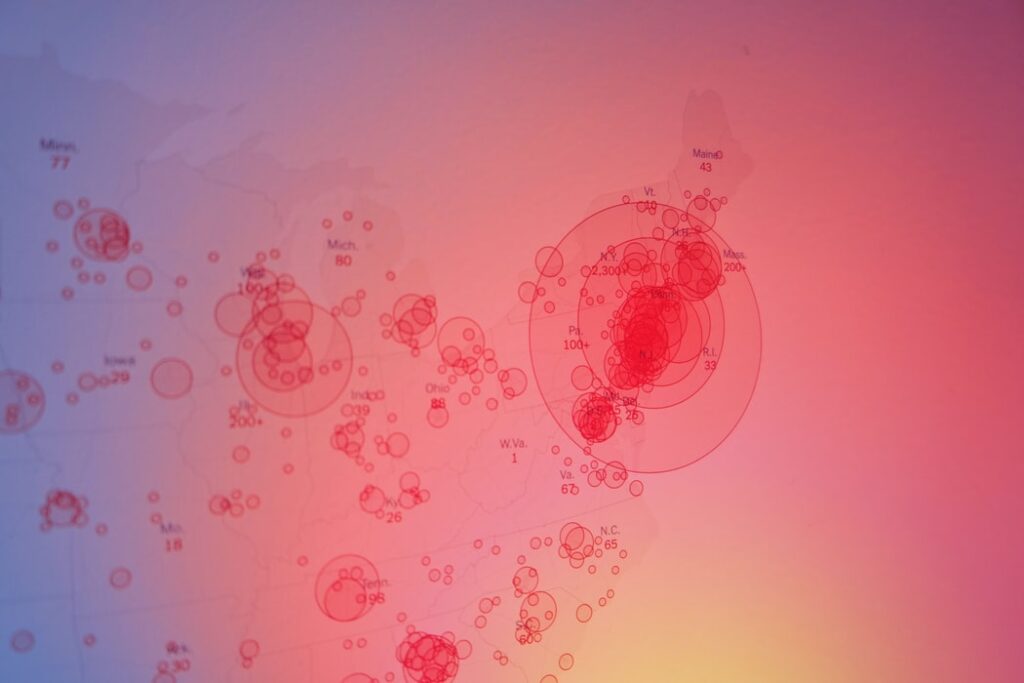
What can you do to prevent the coronavirus disease at home?
Cautious and accurate hygiene methods can go together to keep people safe. Following product use and safety information is crucial in this case.
Disinfecting: Several disinfectant and cleaning products can be effective against the new coronavirus that could stay on the surfaces, following the EPA Viral Emerging Pathogen Policy.
EPA-registered disinfectant products to use against Novel Coronavirus (COVID-19)
Disinfecting and cleaning tips to remember:
- After disinfecting, let the surface dry, and check the recommendations on the product label.
- Pre-clean any surfaces before disinfecting to remove any kind of dirt that could be there.
- If you are disinfecting the food or toys, rinse them with water after they dry.
- Pay special attention to disinfecting everything that comes into constant contact with your hands, like your phone or wallet.
Important! Disinfectants are intended to kill viruses or germs on surfaces. Do not ever use them on the skin and do not inject them internally.
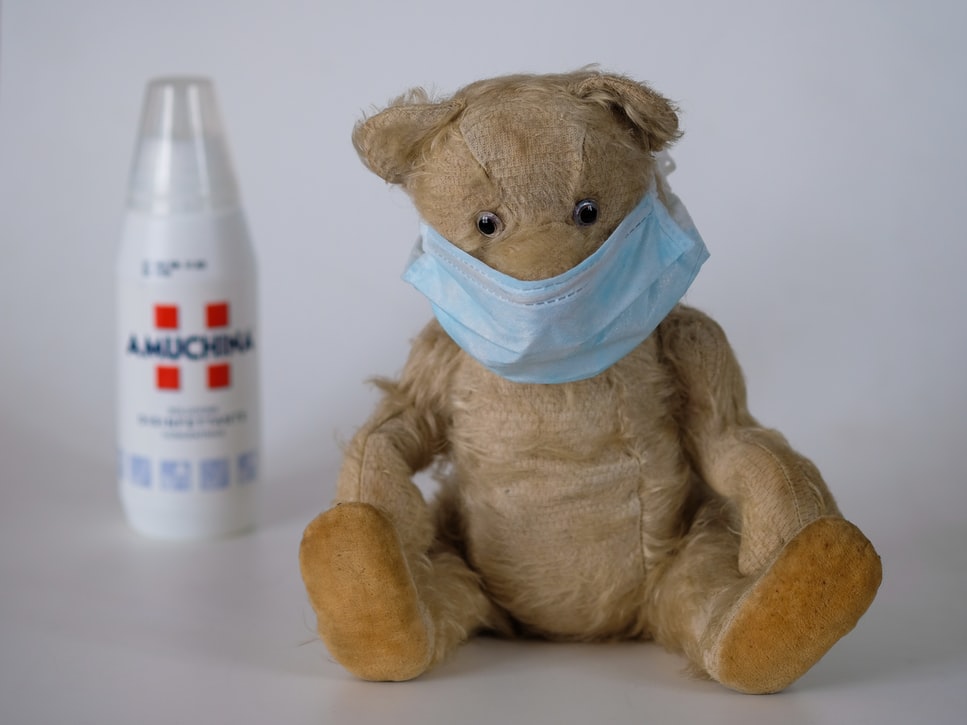
How to Properly Clean During the Pandemic
- It’s recommended to wear reusable or disposable gloves for regular cleansing.
- Always clean surfaces using water and soap, then use disinfectant.
- Scrubbing with soap and water decreases the number of germs, dirt, and infections on the surface. Disinfecting eliminates germs on surfaces.
- Do a routine cleaning of frequently touched surfaces, which includes:
- tables,
- light switches,
- doorknobs,
- keyboards,
- handles,
- desks,
- countertops,
- phones,
- toilets,
- faucets,
- sinks, etc.
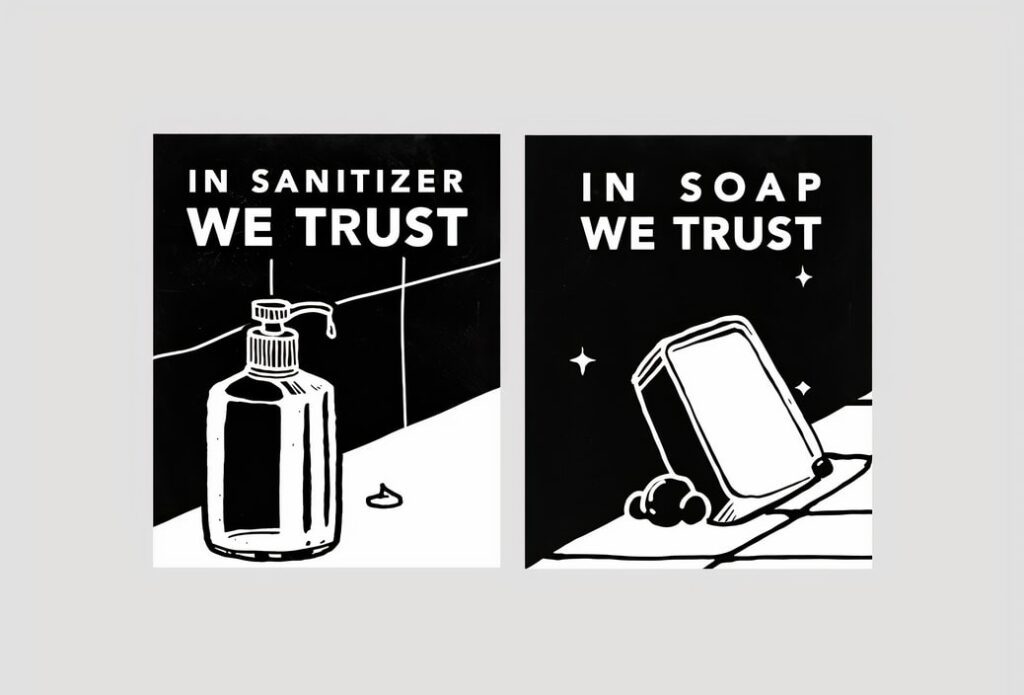
Should You Disinfect Food and Snacks?
Not really, at least not without a reason. Following the FDA, there is no evidence to guarantee that food or its packaging can carry Covid-19, so there is currently no obligation to disinfect food or its packaging any further than you normally would. Just obey the regular food safety and wash your hands after. You can also wipe fruits using a paper towel.
How often should you disinfect your surroundings for coronavirus?
- To Prevent the Coronavirus Spread At Work: Regularly wash your hands before eating, after using the bathroom, after using the coffee machine or if you have touched any frequently touched surfaces like a door handle. You can use a sink or disinfectant spray containing at least 60% alcohol. Better not to share food and constantly clean and disinfect your workspace. Stay home if sick and keep a distance from colleagues if they were recently ill.
- To Prevent the Coronavirus Spread at Home: Clean your hands before and after cooking, before eating, after using the bathroom, after touching garbage and after handling pet food if you just came home, leave your shoes near the door, wash your hands and change your clothes. Clean and disinfect frequently used objects. If someone is sick, use these CDC guidelines for extra cleaning and sanitizing actions.
- When You Have to Go Out: Avoid touching your face after contact with frequently-touched surfaces. Use an antibacterial wipe on the handles, elevator buttons, grocery cart handles, etc.
- During the Travel: Keep your distance from anyone who is sneezing, coughing, or looking sick. And use all precaution methods listed above.
Do disinfecting surfaces really prevent the spread of coronavirus?
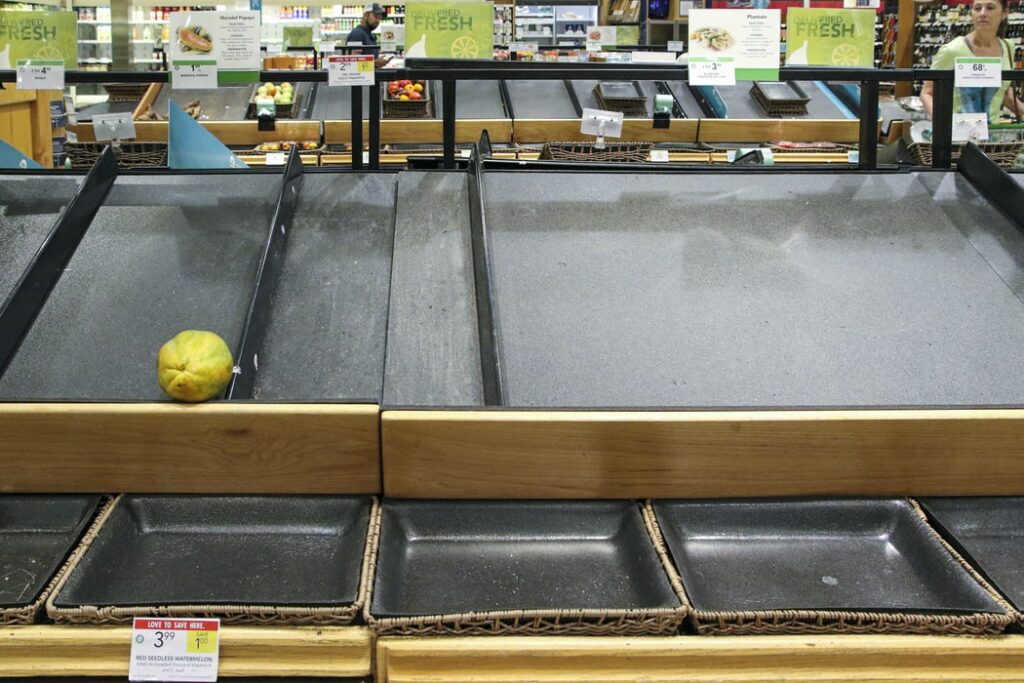
Disinfecting surfaces could really help to prevent the spread of coronavirus because the virus persists for 2 to 3 days on stainless steel and plastic surfaces.
Disinfecting relates to using chemicals to kill microbes on surfaces. Disinfecting does not significantly clean dirty surfaces or remove germs, but when you are killing germs on a surface by doing accurate cleaning, it can further lower the risk of spreading infection.
Store shelves are empty in many places, especially in the cleaning division, but you still have lots of options. First of all, please always use more soap, water, and scrubbing. That can make a tremendous impact.
How to make your own disinfectant
- We recommend you use EPA-registered household disinfectant
- Follow the instructions to ensure safe and efficient use of the product. Infographic by EPA on how to use disinfectant products.
- Some of these products recommend:
- Keeping surface wet for a period of time (check product label)
- Precautions such as using gloves and making sure you have sufficient ventilation during the application of the product
- Diluted household bleach solutions may also be used if relevant for the surface.
- Examine the label to recognize if your bleach is intended for disinfection, and make sure the product is not expired. Some bleaches, for example, like those created for safe use on colored clothing may not be suitable for this.
- Follow the manufacturer’s instructions for application and proper ventilation. Don’t mix household bleach with ammonia or any other cleanser.
- Unexpired household bleach will be effective against coronaviruses when properly diluted.
- Leave solution on the surface for at least 1 minute.
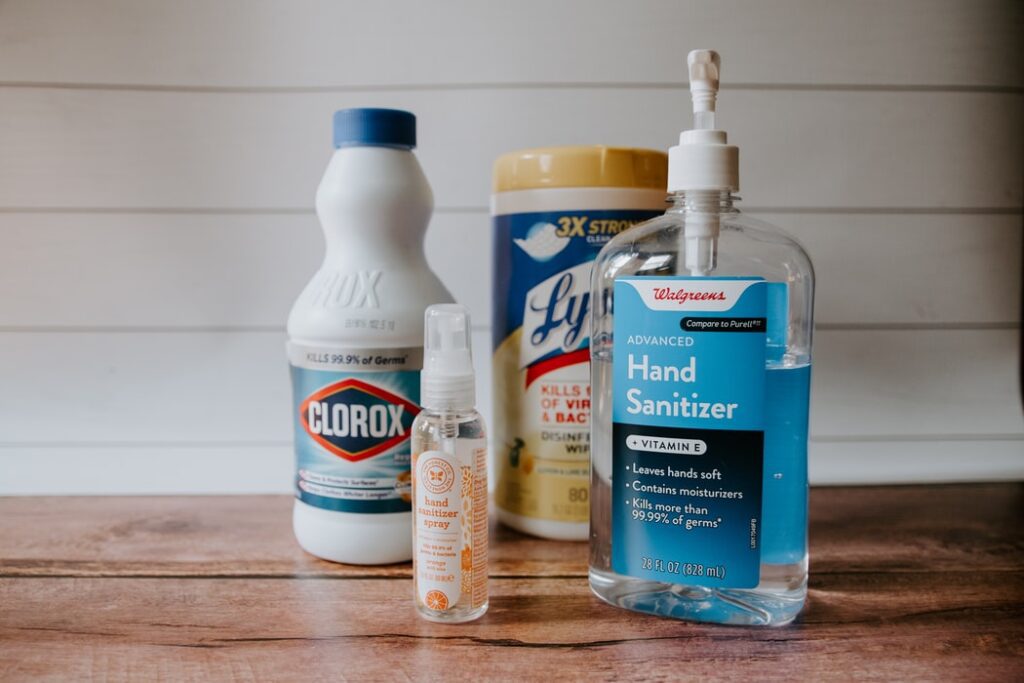
To make a bleach solution, mix:
- 5 tablespoons (1/3rd cup) bleach per gallon of water
OR
- 4 teaspoons of bleach per quart of water
- Bleach solutions will be effective for up to 24 hours.
- Alcohol solutions with at least 70% alcohol may also be used.
- So if you are wondering what DIY household cleaner kills coronavirus, you can check this Full Disinfection Guidance.
You also can check our guide to Cleaning Supplies
How to Disinfect Soft Surfaces
For soft surfaces such as carpeted floors, rugs, and drapes.
- Wipe the surface using water with soap or with cleaners appropriate for use on these surfaces.
- Launder items (if possible) according to the manufacturer’s instructions. Use the warmest appropriate water setting and dry items completely.
OR
- Disinfect with an EPA-registered household disinfectant
- Meet EPA’s criteria for use against COVID-19
- Vacuum as usual
How should you clean the inside of your car to stop the spread of coronavirus?
First of all, you should think about how to sanitize your car without harming the interior.
As always, you should start with soap. It doesn’t really matter what kind of soap to pick. Car owners usually make a simple soap scrub however it’s effective against most viruses and it doesn’t harm your car’s interior. But don’t forget that it needs time while soap would take an effect. You can’t just move some soap around and then rinse It off in seconds.
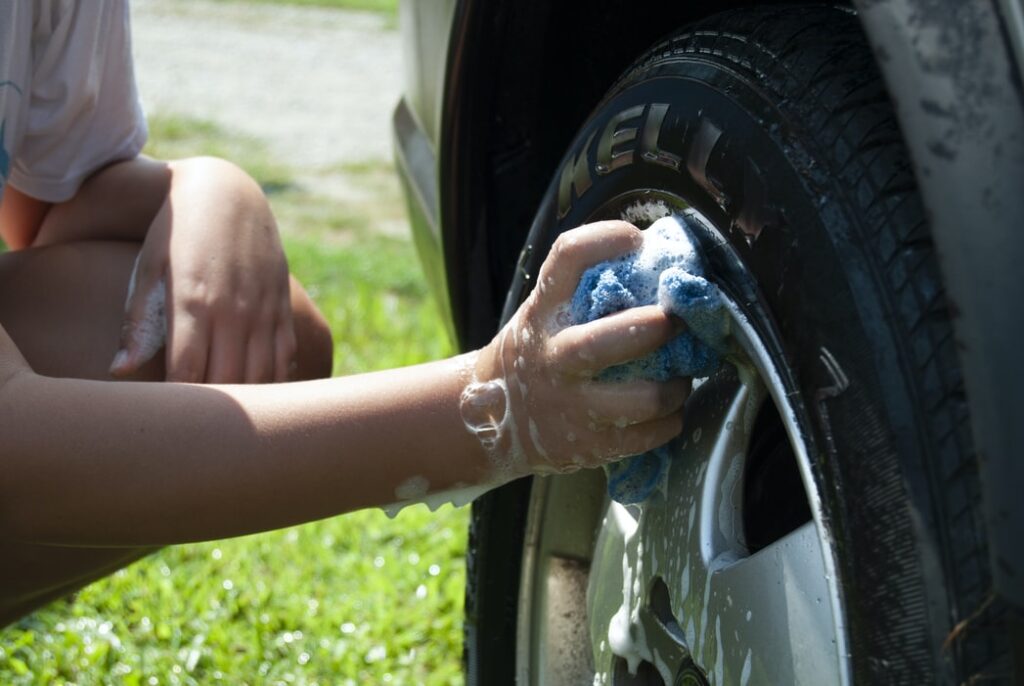
Disinfecting wipes and hand sanitizer are also safe to use on your vehicle’s surfaces. Cars with leather interiors should be cleaned with the leather cleaner after drying. It’s crucial to clean a touchscreen if you have it, just use the microfiber cloth. And the most important is to scrub down the steering wheel of your car.
We should warn you, do not use bleach in your vehicle because it will harm the surfaces.
Types of Cleaning Services During the Coronavirus
Focal disinfection from coronavirus
This type of cleaning is indispensable when someone close to you lives in the apartment, or some employees were infected with Covid-19. (ULV) Ultra-low volume disinfection fogging is based on a fogger device to generate a cloud of disinfectant liquid. The cleaning specialists are passing through the entire home or office and reach even hard-to-get areas. The application of disinfectants and biocides using this method can dramatically decrease the number of germs both on surfaces and in the air.
The droplets can get beneath, on top of, and on the sides of numerous things and inaccessible spaces that are almost not reached using traditional cleaning techniques. Also, it reaches a wider range of surfaces than manual cleaning, including textiles.
Rapid ULV fogging and disinfection allows the treatment of large areas quickly to break the spread of the disease.
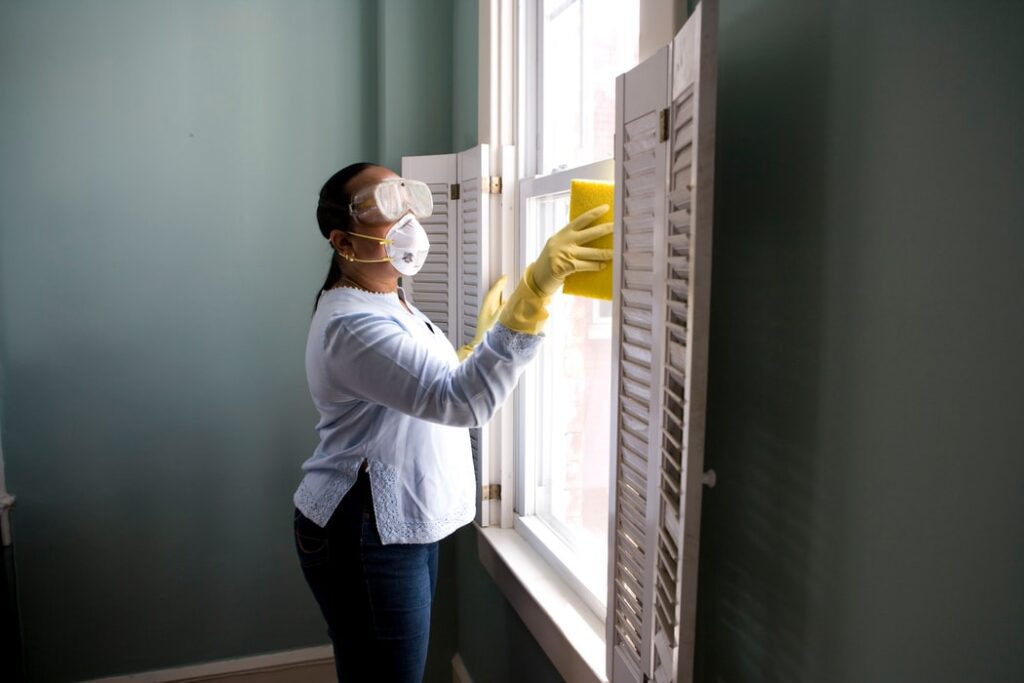
Coronavirus home disinfection
Specialists travel to the house and carefully clean from dust and accumulated objects like floors, carpets, and hard surfaces. During the high-quality sanitation of surfaces, cleaners are paying special attention to door knobs, since the owner constantly interacts with them, coming from the outside. The company’s specialists also clean and disinfect windows, cabinet furniture, and kitchen work surfaces. There is not a single surface in the house that could be “not attractive” to the virus since it is transmitted through the air.
It is essential to provide comprehensive disinfection of your own housing if there are children, people who suffer from allergies, or who are at risk of getting an illness (elder people and those who suffer from concomitant, chronic diseases). You just need to call our NY cleaning specialists by phone or fill out a form online, indicating the data: New York area; what kind of cleaning is needed; the address; suitable date and time. Plus, customers are not obliged to be personally present during the cleaning process.
Coronavirus Office Disinfection
When ordering disinfection of the offices from the coronavirus, you should definitely use the services of specialists who work at the facility using the special equipment. Many engineering communications in the offices and shops are located in separate buildings, for example, small shops on the first floors of residential real estate, are “attractive” to pathogenic viruses and bacteria. Covid-19 is no exception. You can order the disinfection of the office on a suitable date and carry it out immediately before the arrival of employees. If one of the colleagues is ill with a coronavirus or came into contact with someone who has a confirmed diagnosis, then comprehensive sanitation of the office is vital. It includes such processes: floor cleaning from dust. Cleaning common areas, including restrooms. Surface treatment with a special disinfectant solution. Cleaning door and furniture handles, water taps, and window sills.
It’s very difficult to disinfect an apartment from viruses on its own, you can only partially remove the hearths of infection from objects where they remain for a long time. Hopefully, you can include such type of disinfection, during your apartment cleaning.
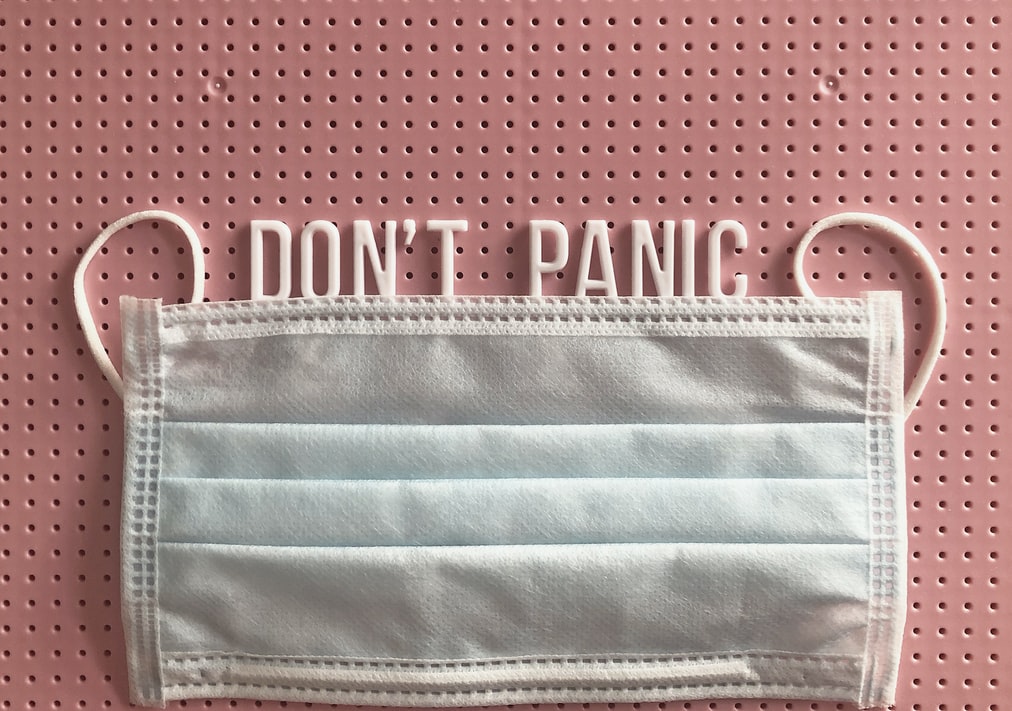
Stay Home
Even if you’re not sick, just stay home as long as you can. Staying in large crowded areas of NYC or going out to cafes include additional risks to yourself and most important to the beloved ones around you. The longer you’re in public, the higher chances the new coronavirus has to hitch a ride on your clothes, hands, or person. Huge amounts of people are very vulnerable to this kind of virus. Putting yourself at risk also puts them at risk.
Vital Rules to Stay Safe:
- Stay at home except for necessary trips to get food, products, etc.
- Wear a cloth face mask in public places and change it regularly.
- Stay 7 feet away from other people in public.
- And again, wash your hands regularly for at least 30 seconds or use hand sanitizer.
- Sneeze or cough into a tissue or the inside of your elbow.
- Evade rubbing your face.
